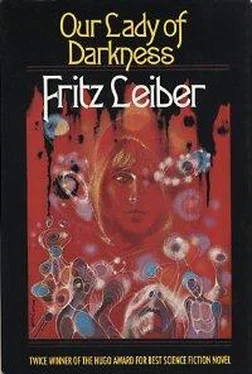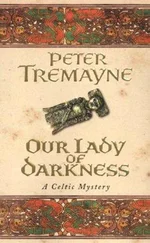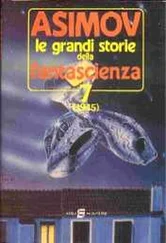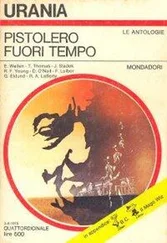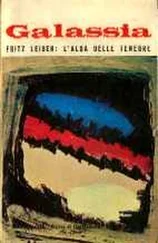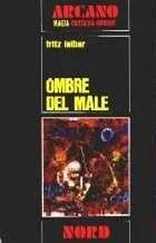Franz looked at his program. The Brandenburg Fifth was the finale. There were two intermissions. The concert opened with:
Concerto in C Major for Harpsichord and Chamber Orchestra by Giovanni Paisiello
1. Allegro
2. Larghetto
3. Allegro (Rondo)
Saul nudged him. He looked up. Cal had come on stage unobtrusively. She wore a white evening frock that left her shoulders bare and sparkled just a little at the edges. She said something to a woodwind, and in turning, looked the audience over without making a point of it. He thought she saw him, but he couldn’t be sure. She seated herself. The house lights went down. To a spreading ripple of applause the conductor entered, took his place, looked around from under his eyebrows at his instrumentalists, tapped the lectern with his wand, and raised it sharply.
Beside Franz, Saul murmured prayerfully, “Now in the name of Bach and Sigmund Freud, give ’em hell, Calpurnia.”
“And of Pythagoras,” Gun faintly chimed.
The sweet and rocking music of the strings and of the softly calling, lulling woodwinds enfolded Franz. For the first time since Corona Heights he felt wholly safe, among his friends and in the arms of ordered sound, as if the music were an intimate crystal heaven around and over them, a perfect barrier to paranatural forces.
But then the harpsichord came in challengingly, banishing cradled sleep, its sparkling and shivery ribbons of high sound propounding questions and gaily yet inflexibly commanding that they be answered. The harpsichord told Franz that the concert hall was every bit as much an escape as anything proposed on Beaver Street.
Before he knew what he was doing, though not until he knew well what he was feeling, Franz had got stoopingly to his feet and was edging out in front of Saul, intensely conscious yet regardless of the waves of shock, protest, and condemnation silently focused upon him from the audience—or so he fancied.
He only paused to bend his lips close to Saul’s ear and say softly but very distinctly, “Tell Cal—but only after she’s played the Brandenburg—that her music made me go to find the answer to the 607 Rhodes question,” and then he was edging on quite rapidly, the back of his left hand very lightly brushing backs to steady his course, his right hand an apologetic shield between himself and the sitters he passed in front of.
As he reached the end of the row, he looked back once and saw Saul’s frowning and intensely speculative face, framed by his long brown hair, fixed upon him. Then he was hurrying up the aisle between the hostile rows, lashed on—as if by a whip strung with thousands of tiny diamonds—by the music of the harpsichord, which never faltered. He kept his gaze fixed steadily ahead.
He wondered why he’d said “the 607 Rhodes question” instead of “the question of whether paramentals are real,” but then he realized it was because it was a question Cal had herself asked more than once and so might catch its drift. It was important that she understand that he was working.
He was tempted to take a last look back, but didn’t.
In the street outside the Veterans Building, Franz resumed his sidewise and backward peerings, now somewhat randomized, yet he was conscious not so much of fear as of wariness, as if he were a savage on a mission in a concrete jungle, traveling along the bottoms of perilously wailed, rectilineal gorges. Having taken a deliberate plunge into danger, he felt almost cocky.
He headed over two blocks and then up Larkin, walking rapidly yet not noisily. The passersby were few. The gibbous moon was almost overhead. Up Turk a siren yelped some blocks away. He kept up his swiveling watch for the paramental of his binoculars and/or for Thibaut’s ghost—perhaps a material ghost formed of Thibaut’s floating ashy remains, or a portion of them. Such things might not be real, there still might be a natural explanation (or he might be crazy), but until he was sure of one or the other, it was only good sense to stay on guard.
Down Ellis the slot which held his favorite tree was black, but streetside its fingered branch-ends were green in the white street lights.
A half-dozen blocks west on O’Farrell he glimpsed the modernistic bulk of St. Mary’s Cathedral, pale gray in the moonlight, and wondered uneasily about another Lady.
He turned down Geary past dark shop fronts, two lighted bars, and the wide yawning mouth of the De Soto garage, home of the blue taxicabs, and came to the dingy white awning that marked 811.
Inside the lobby there were a couple of rough-looking male types sitting on the ledge of small hexagonal marble tiles below the two rows of brass mailboxes. Probably drunk. They followed him with their dull eyes as he took the elevator.
He got off at six and closed the two elevator doors quietly (the folding latticed and the solid one) and walked softly past the black window and the black broom closet door with its gaping round hole where the knob would have been, and stopped in front of his own door.
After listening a short while and hearing nothing, he unlocked it with two twists of his key and stepped inside, feeling a burst of excitement and fear. This time he did not switch on the bright ceiling light, but only stood listening and intent, waiting for his eyes to accommodate.
The room was full of darkness. Outside the open window the night was pale (dark gray, rather) with the moon and with the indirect glow of the city’s lights. Everything was very quiet except for the faint, distant rumbles and growls of traffic and the rushing of his blood. Suddenly there came through the pipes a solid, low roaring as someone turned on water a floor or two away. It stopped as suddenly and the inside silence returned.
Adventurously, Franz shut the door and felt his way along the wall and around the tall clothes cabinet, carefully avoiding the work-laden coffee table, to the head of his bed, where he turned on the light. He ran his gaze along his Scholar’s Mistress, lying slim, dark, and inscrutably silent against the wall, and on to the open casement window.
Two yards inside it, the large oblong of fluorescent red cardboard lay on the floor. He walked over and picked it up. It was jaggedly bent down the middle and a little ragged at the corners. He shook his head, set it against the wall, and went back to the window. Two torn corners of cardboard were still tacked to the window sides. The drapes hung tidily. There were crumbles and tiny shreds of pale brownish paper on his narrow desk and the floor at his feet. He couldn’t remember whether or not he’d cleaned up those from yesterday. He noted that the neat little stack of ungutted old pulps was gone. Had he put those away somewhere? He couldn’t remember that either.
Conceivably a very strong gust of wind could have torn out the red cardboard, but wouldn’t it also have disordered the drapes and blown the paper crumbs off his desk? He looked out to the red lights of the TV tower; thirteen of them small and steady, six brighter and flashing. Below them, a mile closer, the dark hump of Corona Heights was outlined by the city’s yellowish window and street lights and a few bright whites and greens in snaky curves. Again he shook his head.
He rapidly searched his place, this time not feeling foolish. In the closet and clothes cabinet he swung the hanging garments aside and glanced behind them. He noticed a pale gray raincoat of Cal’s from weeks back. He looked behind the shower curtain and under the bed.
On the table between the closet and bathroom doors lay his unopened mail. Topmost was a cancer drive letter from an organization he’d contributed to after Daisy had died. He frowned and momentarily narrowed his lips, his face compressed with pain. Beside the little pile were a small slate, some pieces of white chalk, and his prisms, with which he occasionally played with sunlight, splitting it into spectrums, and into spectrums of spectrums. He called to his Scholar’s Mistress, “We’ll have you in gay clothes again, just like a rainbow, my dear, after all this is over.”
Читать дальше
